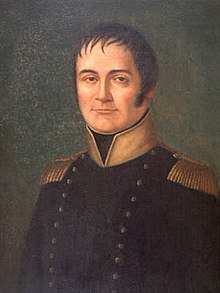- ↑ VILLERE, Jacques Philippe Archived September 16, 2021, at the Wayback Machine in the Louisiana Historical Association's Dictionary of Louisiana Biography, accessed 04 July 2020.
- ↑ Ibid.
- ↑ Reilly, Robin. The British at the Gates. New York: G.P. Putnam's Sons, 1974 (Reprinted 2002 by Robin Brass Studio, Toronto), p. 251 ff.
- ↑ Wilson, Samuel, Jr. Plantation Houses on the Battlefield of New Orleans. New Orleans: Louisiana Landmarks Society, 1989 (Reprinted 2011 by Pelican Publishing Co.), p. 87.
- ↑ Jacques P. Villeré at La-Cemeteries.com, retrieved 18 April 2017.
- ↑ Villere, Jacques Philippe Archived September 16, 2021, at the Wayback Machine in the Dictionary of Louisiana Biography, accessed 04 July 2020.
- ↑ Jacques Philippe Villeré in the Louisiana Endowment for the Humanities' encyclopedia, accessed 18 April 2017.
External links
Jacques Villeré | |
|---|---|
 | |
| 26th, 2nd since U.S. Statehood Governor of Louisiana | |
| In office December 16, 1816 –December 18, 1820 |
